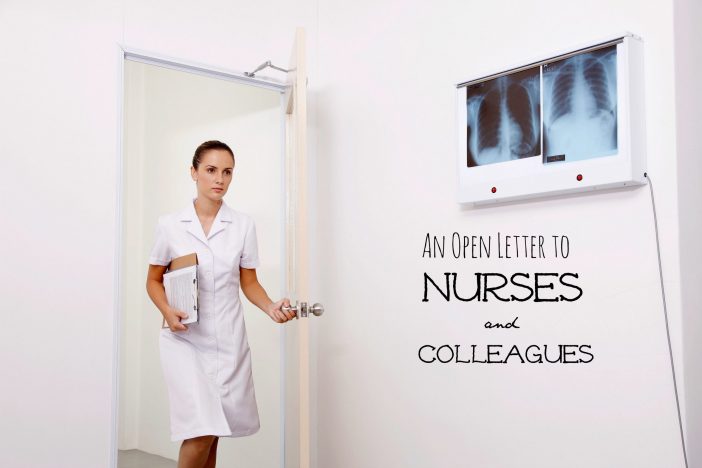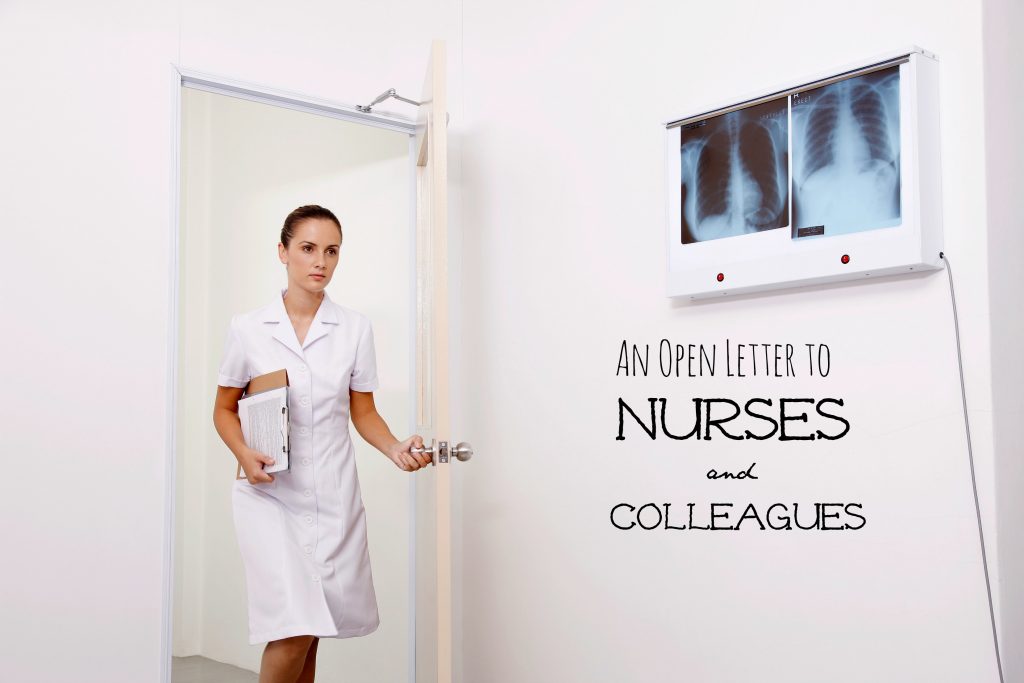
On August 24, 2016, a fear of mine became a reality. I have had this fear ever since veterinary technicians set out to explore our options in uniting our title and possibly being called “Veterinary Nurses”.
“I’m sorry lady-at-the-vet, but you are not a nurse.” On a popular nursing blog, a registered nurse (RN) posted this thought about a receptionist’s use of the term “nurse” to refer to a staff member at her vet’s practice, and I felt hugely deflated upon reading the page. The premise of her argument was that nurses go through specific education and training that is physically and emotionally taxing, taking them away from their families, finally passing their board exam to become licensed; only those with this specific badge of honor (of which she is rightfully proud) deserve to be called a “nurse”.

When the veterinary community caught wind of this article, the comment section exploded… almost literally. Veterinary technicians, veterinary nurses, veterinarians, and even former veterinary technicians now working in human medicine expressed their opinions regarding the author’s comparison between a “nurse” and the “lady-at-the-vet”. Both the original post and quite a few of the responses from the veterinary community make one similarity (among many) between our fields clear: RNs and vet techs don’t know that much about one another.
We all feel pride for our profession
Let me first say, that I feel the same pride for our profession as you do, and felt the same frustration at the blog author’s lack of recognition for the education, the examination, and the maintenance of credentialing that we achieve, and the role we play within the veterinary team. I also took pride from the excellent examples of veterinary nurses and technicians taking this opportunity to provide the author information regarding our profession, including the comparable challenges we face with title protection and recognition for the education, training, and commitment we make to the profession. These comments inspired me.
The comments that were disheartening to me were the ones that lobbed insults, were mean-spirited, or demeaned the nursing profession. Veterinary technicians and veterinary nurses are professionals with compassion and understanding, and we should not have to resort to insults to make a point.
“We do way more than RNs” is a common comment made which displays our lack of understanding of the nursing profession. The nursing profession has a significant number of degrees and certifications for specialization that can be achieved leading to in-depth knowledge in those areas. It is true that the day to day activities of the average veterinary technician are generally broader in scope than our counterparts in the human field, but specialization cannot be equated with “doing less.” As an example, is a high school chemistry teacher doing less than a 2nd grade science teacher? Human nurses deserve just as much respect as we are demanding from them.
Additionally, whether we like the author’s delivery or not, it is the truth that 39 states have the title “nurse” protected for use by those who obtain the specialized training to become an RN. Fortunately, some of those states will allow the title “veterinary nurse” and “nurse” to co-exist without conflict, giving us 26 states in which the title “veterinary nurse” is implementable.
There are valid arguments in there
At the same time, we techs want to emulate the strong title protection that RNs have, We know the feelings this author is expressing, probably more acutely! Non-credentialed persons calling themselves veterinary technicians have been a consistent problem for our profession. After having gone through 2 to 4 years of schooling, passing the national board exam – the Veterinary Technician National Examination (VTNE), and meeting additional requirements to finally become a credentialed veterinary technician, it can be infuriating that someone not having gone through the same level of education and training would use the title.
To be fair, what if this angry nurse was right, and the individual in question really was a “lady-at-the-vet”? We have no way of knowing if she does have credentials. Should we be angry at this potential “veterinary nurse” imposter? Angry at the nurse for not seeking out a facility with known standards of care? Angry at the vet for their hiring practices? Anger appears to be the wrong answer – not only will it not bring about a solution, it’s hard to know where to even direct it, because we don’t have enough information, which is where all the trouble with this RN’s post begins and ends.
Heather Prendergast (co-chair) and I met with a nurse from the National Council of State Boards of Nursing who kindly explained how their profession united their credentials and continues to work towards standardizing requirements. When we asked for her opinion on the title change to “veterinary nurses”, she was at first surprised, but then started asking questions about our education, credentialing process, and scope of practice to learn more. We happily educated her about veterinary technology, and the meeting ended favorably – she gave us advice on who else to contact on the topic and offered help.
Through discussions, the prevailing message from the nurses is loud and clear. Being a nurse, is a calling. It is a profession. A way of life. The nurses call for those using the title to uphold the highest of standards in professionalism, education, training, and patient care. It’s on our shoulders to prove that we meet these standards.
We have work to do
The way to achieve our goal of uniting the profession under one title and standardized credential requirement is by being responsible professionals. Each of us have the ability and duty to continue educating members of the public, the veterinary team, and nurses of our profession to improve awareness of our role. Join the conversations and efforts. Contact your national and state veterinary technician associations to voice your opinions.
We urge you to rise to the occasion and learn more about the issue. With collaborative movements such as the One Health Initiative uniting human and veterinary medicine emerging, cohesiveness of medical professionals is a part of the future. Represent us as professionals, making valid arguments for the decisions we make so that we continue to elevate the value of our title.
So the ball’s in our court, veterinary technicians/nurses. How will we gain the recognition we deserve?
National Credential Task Force
Kenichiro Yagi, BS, RVT, VTS (ECC, SAIM)
Haven Bade, LVT, VTS (ECC, Anesthesia and Analgesia)
For official information regarding the National Credential Initiative, please visit www.navta.net. Web conferences updating our findings thus far are planned for the month of September and October, to be followed by a veterinary field-wide survey on the topic. Have your voice heard.
The views and opinions expressed in this article are those of the author and do not necessarily reflect the position of the DrAndyRoark.com editorial team.
 ABOUT THE AUTHOR
ABOUT THE AUTHOR
Kenichiro Yagi, BS, RVT, VTS (ECC, SAIM) practices at Adobe Animal Hospital in California as an ICU and Blood Bank Manager. He is an active educator lecturing and providing practical instruction internationally, and has authored texts, chapters, and articles on transfusion medicine, respiratory care, and critical care nursing. He serves on the board for the Veterinary Emergency and Critical Care Society, Academy of Veterinary Emergency and Critical Care Technicians, and the Veterinary Innovation Council, and as the NAVTA State Representative Chairperson and a co-chair of the NAVTA National Credential Task Force. Ken invites everyone to ask “Why?” to understand the “What” and “How” of our field, and to constantly pursue new limits as veterinary professionals.
//www.linkedin.com/in/kenichiro-yagi-a89b3897